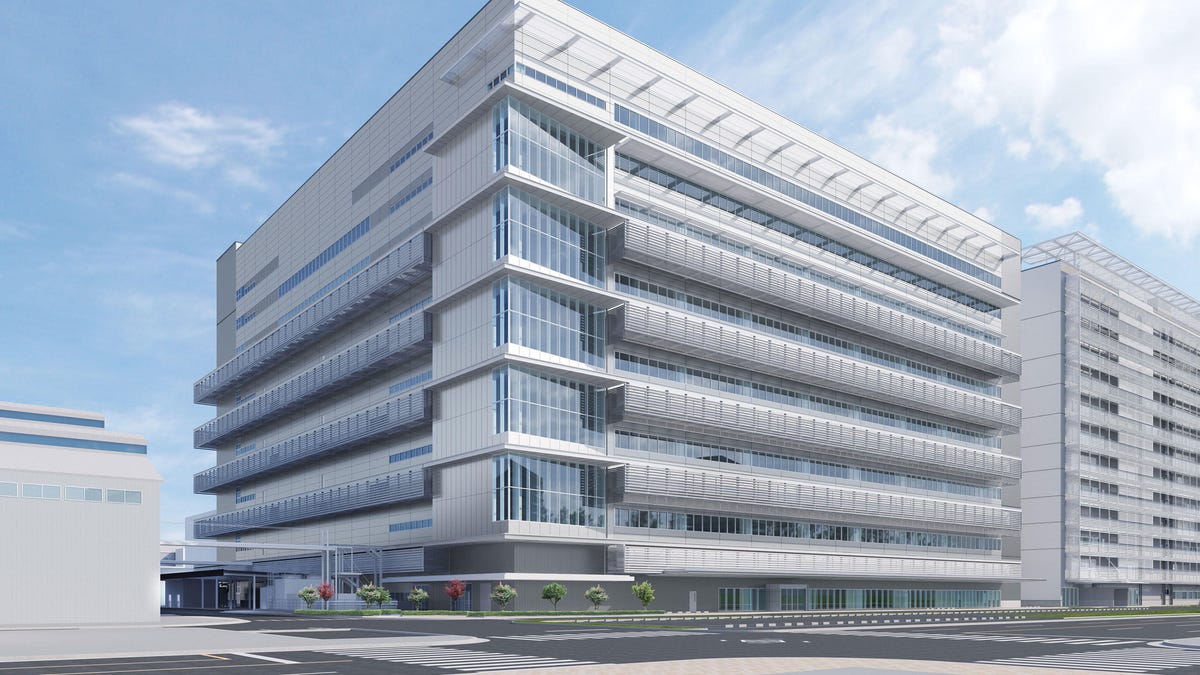Toyota to build more fuel cell stacks, hydrogen tanks at new facility
The goal is to increase fuel-cell vehicle sales tenfold as of 2020.

This rendering shows what the new fuel cell stack facility at the Honsha Plant in Toyota City will look like.
As it works to increase sales of fuel cell cars worldwide, Toyota is scaling up its production of two key components for the green vehicles. Production of hydrogen fuel cell stacks is moving to a new, 750,000 square-foot facility within Toyota City, Japan, while a new line for building hydrogen tanks will be built within the company's Shimoyama Plant.
Both of the new production facilities are expected to come online around 2020. Fuel cell stacks are the components that combine hydrogen and oxygen to produce electricity, while the tanks are made from carbon fiber for strength to hold highly pressurized hydrogen.
The announcement comes as Toyota confirms its goal to sell ten times as many hydrogen-powered vehicles from 2020 as it does today. That's a goal of 30,000 units annually, versus about 3,000 last year. Within Japan, Toyota wants annual fuel cell sales to exceed 10,000 from 2020.
Currently, Toyota sells the Mirai fuel-cell car in Japan, the US and nine European countries, with hopes to expand sales to other countries soon. Toyota says that making the components for hydrogen cars in higher volumes is key to it lowering the cost of fuel cell technology, as well as making it available more broadly. The Mirai costs $59,260 in the US with destination but before any tax credits, or can be leased for $349 per month for 36 months. But for now it's currently only sold here in California, because that's where the majority of the nation's public hydrogen filling stations are found – though an expansion to Hawaii is planned.
As part of Toyota's plan to electrify its entire lineup by 2025, the automaker plans to launch new fuel cell vehicles, with the goal of selling a combined 1 million electric and fuel cell cars worldwide by 2030. In Japan, Toyota will launch a fuel cell-powered bus called the Sora in 2020, and has already started using fuel cell forklift trucks at one of its assembly plants. The company also has been testing a fuel cell-powered commercial truck, called Project Portal.

